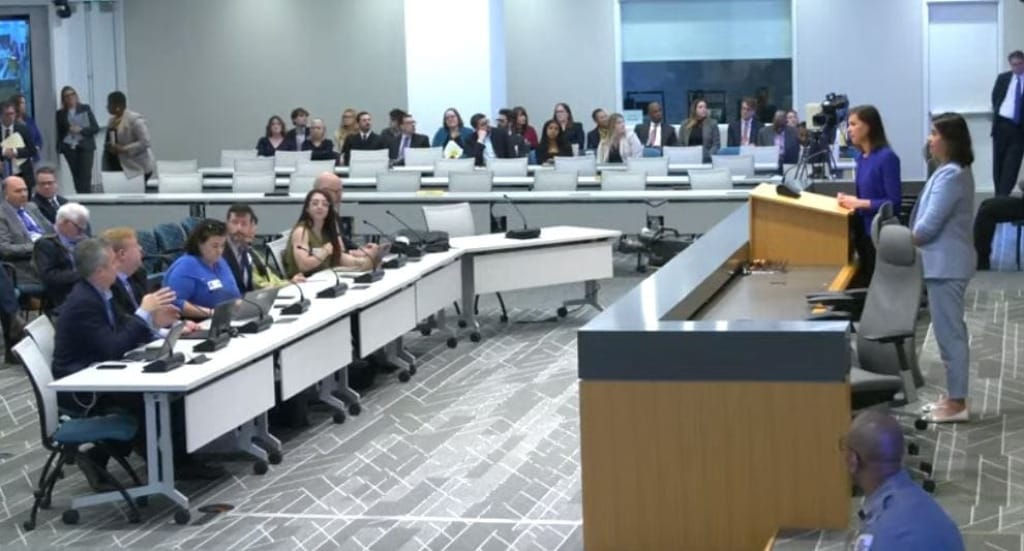Net Neutrality
That’s the date trade groups have to decide whether to further challenge a New York law affected by the rules.


WASHINGTON, June 3, 2024 – Major broadband trade groups are looking for the Federal Communications Commission to rule on their request to pause the agency’s net neutrality rules by June 7 – the deadline by which some of the same trade groups have to decide whether to further challenge a New York state affordability law.
Industry groups are taking the FCC to court over its move to strengthen its regulatory muscle by reclassifying broadband as a Title II service under the Communications Act, which the groups say the agency lacks authority to do under recent Supreme Court precedent. The groups filed on Friday a petition asking the agency to stay its net neutrality order, set to take effect July 22, to give the courts time to decide on a judicial stay.
The groups want the FCC to decide whether to issue a stay by June 7. That’s the same day some of the same trade groups, including USTelecom, CTIA, and ACA Connects, are planning to reach a deal with the New York Attorney General’s office that would see the ISPs back off from challenging the state’s law.
That law, the Affordable Broadband Act, mandates ISPs offer broadband to low-income subscribers in the state at $20 per month, or less depending on the speed. Industry groups challenged the law in court, alleging the state lacked the authority to regulate broadband rates, but a panel of the U.S. Court of Appeals for the Second Circuit upheld the law. The court said that in the absence of FCC authority over broadband prices, states could step in and regulate retail broadband rates.
But the Second Circuit ruling, published one day after the FCC voted to reinstate net neutrality on April 25, is based on the agency wielding light-touch Title I authority over broadband. Title II of the Communications Act gives the FCC the ability to regulate broadband prices, and the agency forbore from exercising that power over ISPs in its order that deemed ISPs as common carriers.
That forbearance could still complicate the New York law, as Second Circuit judges signaled that such a move would preempt state-level policies on rate regulation.
“If the FCC decides to forbear from imposing a common carrier obligation, the states are prohibited from imposing that same obligation on the telecommunications service,” the Second Circuit wrote.
If the FCC were to stay its Title II order, it could water down any potential legal challenge to the Second Circuit decision, as the legal framework would be unchanged. Conversely, if the agency refuses the industry groups’ request – as it is likely to do – the case could be reheard under the newly adopted Title II regime.
In an effort to protect laws like New York’s, Democratic commissioners at the FCC added language to the order drawing a distinction between price caps for low-income subscribers only and the general consumer broadband pricing the agency elected not to touch.
“We also clarify that the mere existence of a state affordability plan is not rate regulation,” the adopted order reads.
New Street Research analyst Blair Levin wrote in a note to investors that it’s possible the agreement being hammered out between New York and the ISPs could involve the state supporting a future filing in which ISPs would ask for a right to try for a rehearing after the normal 30-day window, in exchange for providers holding off and complying with the law until then.
The trade groups “request that the Commission resolve this petition for a stay expeditiously,” the industry groups wrote on Friday. “If the Commission has not ruled by June 7, 2024, petitioners will conclude that the agency has ‘denied the motion or failed to afford the relief requested.’”

